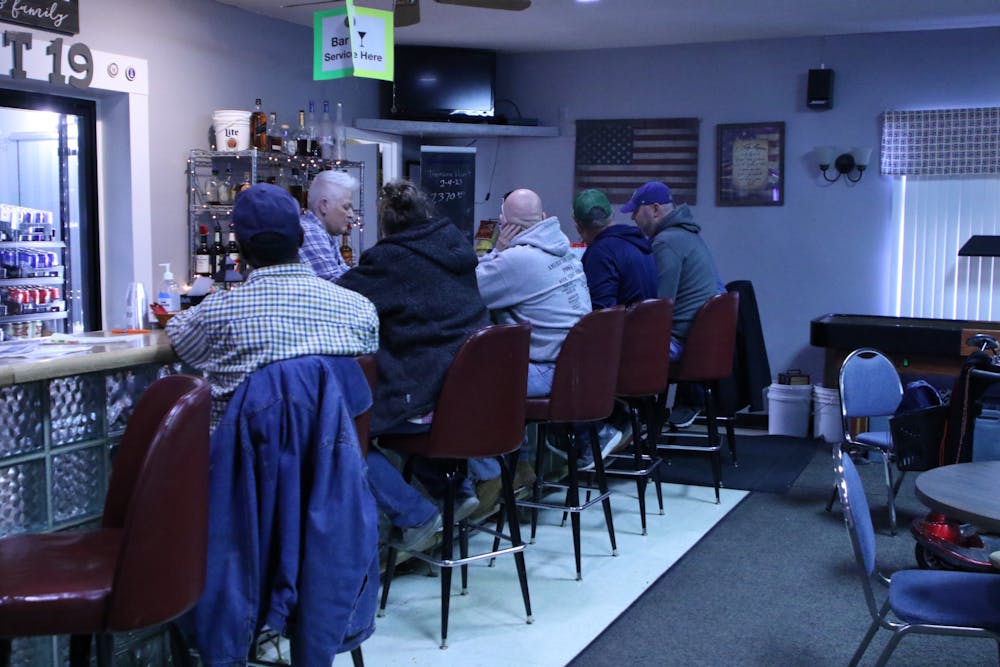When American veterans come out of military service, there are some services offered to them. If they get injured, there are programs for them. Some get awards or medals for their service, but one thing still being worked on today is their mental health.
According to the RAND Center for Military Help Policy Research, an estimated 31 percent of veterans who served in either Iraq or Afghanistan experienced a mental health condition. The site also reports 18.5 percent of all returning service members meet the criteria for post traumatic stress disorder (PTSD) or have depression.
Another study showed members of the Marine Corps ranked highest in depression, anxiety and smoking. Overuse of prescription drugs and PTSD were the highest in the Army.
Current bills in the Indiana State House are trying to give veterans some help. For example, Senate Bill 1 would help Hoosier veterans get service for their mental health. The bill would aim to have more benefits and programs for mental health. The bill would also establish and maintain a help line.
“It’s good to see how mental health is being prioritized,” chaplain Kent Lundy said. “Prioritization is a good thing for service members, veterans and society as a whole.”

Lundy, who has been a chaplain with the Air National Guard for 16 years, believes that the outlook on the mental health stigma should shift directions.
“I would like to see the overall stigma associated with receiving mental health care be lowered,” he said. “I think we could all benefit from empowering those that need mental health services to do so without shame.”
As a chaplain, Lundy provides help for servicemen and their dependents. He is a United Methodist pastor who provides for any and all protestant airmen. If a service member of another faith or religion comes to him, he helps find a chaplain for them.
“If a service member or veteran came to me in a mental health crisis, I would make sure they pay attention to all four pillars of comprehensive Airman fitness (physical, social, mental and spiritual),” he said. “Once I know that person is safe at that moment, I would do a “warm handoff” for them to get follow-up care.”
William Frederick, an Army veteran who served three years in the Vietnam War, remembered how he handled the transition from the battlefield to everyday life.
“It took me two years to adjust,” he said. “I kind of locked everything up and put it in the closet. I worked six days a week from sun-up to sun-down.”
One way Delaware County veterans find help with mental health is through the American Legion, in which the state of Indiana has 400.
The Muncie location, Post 19, is a place for veterans to hang out. They have pool tables, a bar and many more activities for people to do, and they have a Facebook account where they update their events.
One of the ways the Legion helps is with their “commander's breakfast.” Once a month, breakfast is held, and the menu is always the same: biscuits and gravy, scrambled eggs and hashbrowns.
Two years ago, Jesse Casperson was voted as the captain at the Legion. He was in the Marine Corps for 21 years and retired from Camp Pendleton, California. He believes his routine was the toughest part of getting introduced to the everyday world.
“It was hard because after 21 years, you're just used to certain things being done a certain way,” he said. “It just seemed like there was no organization in the civilian world.”

Casperson thinks the work on veteran’s mental health is so important because it is a different kind of injury.
“I think mental health is a hidden wound,” he said. “You can go for years and not realize you have a problem, and then all of a sudden, it can flare out. So I think we owe it to our veterans to continue helping them.”
Another Marine Corps veteran Larry Barnes served for 37 years and started serving during the Vietnam War. He had some advice for servicemen who are just now getting out.
“Certainly join a group like [American Legion],” he said.
Casperson agrees with Barnes and thinks the Legion is a place where veterans can discuss their issues with fellow veterans.
“It's a place that veterans can go where if they want to talk, we can talk to them,” Casperson said. If they don't want to talk, we just show them the camaraderie and welcome them aboard.”
For more information about the Legion, visit their website. Muncie also has a VA. For more information about them, here is their website.
Contact Zach Carter with comments at zachary.carter@bsu.edu or on Twitter @ZachCarter85.





